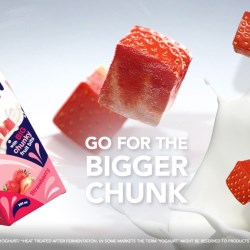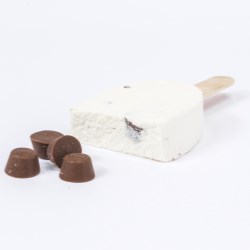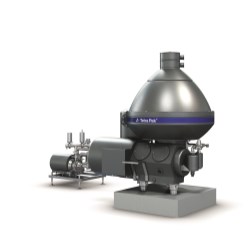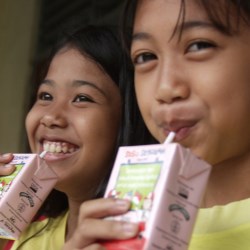If this is your company, CONTACT US to activate Packbase™ software to build your portal.


Tetra Pak today reveals the findings from a global research study in partnership with Ipsos1 on the two most pressing consumer demands: the environment and health. They have historically been seen, and communicated, as separate areas: however they are increasingly converging, creating pivotal opportunities for food and beverage (F&B) brands in how they market their products over the next 12 months.
With two thirds of consumers now believing that we are reaching an environmental tipping point, consumers overwhelmingly see themselves as being directly responsible for the world around them, and for their own health. With environmental issues becoming more evident in daily life, their concerns about the impact on their health is also growing. Nearly 60% of consumers now believe that their health and well-being are strongly affected by environmental problems.
As one of the only industries that can connect the environment at a personal level to the individual, by also talking about health, F&B brands have an opportunity to drive change through the way they communicate with their consumers on these topics, to meet this growing and pressing need.
Consumer concerns and priorities
The more concerned about the environment consumers become, the more health-conscious they become too. Mental health is now considered equal to physical health: 67% of consumers agree that it is a major concern for society, with stress considered the most concerning from a personal perspective.
To support brands with navigating this journey, the Tetra Pak Index 2019 reveals six new segments of consumers, each with their own attitudes around both health and the environment. Each group presents clear opportunities for targeted products and messaging for F&B brands, in embracing the convergence of these topics:
Active ambassadors: high engagement in all aspects of health and environment, willing to take action, challenge boundaries and influence others.
- Look to fact-based sources such as scientists and academics, as well as NGOs for advice on the environment.
Planet friends: willing to take action about the environment with high engagement on most aspects of health, but less inclined to challenge boundaries.
- Engaged and willing to take action about the environment. High engagement also on most aspects of health, especially for peace of mind.
Health conscious: aware and engaged about the environment, but prioritise health over the planet. Prepared to pay more and sacrifice convenience for healthy products.
- Depend heavily on social media and other online sources.
Followers: engaged enough with health and environmental issues to feel guilty about both, but not inclined to change behaviour or try new things.
- Sizeable mainstream cohort with interesting potential, want to know more and be persuaded and energised to act. Look to TV/radio more than the average.
Laggards: lack of knowledge and interest in all aspects of health and the environment. Sceptical about technology and change.
- Look to their own personal, real world networks, particularly towards friends and family.
Sceptics: Aware of environmental issues, but inclined to decline them as “fake news”; “traditional” views on food and health.
- One in five Sceptics say they don’t take advice on the environment from any media channel.
Market Differences
While the intersection of personal and planet health is generally on the rise globally, the level of maturity varies between countries.
In Brazil, consumers are more interested in eco-branded and natural products, marked with health, beauty and sustainable benefits alike. The environment holds a vital place in Brazilian culture, due to the vast scale and biodiversity of nature here.
For the UK, it’s younger consumers in particular who are connecting food, health and the environment, with many seeking to explore different diets: flexitarian, vegetarian and vegan. Consequently there are many Planet friends here (+14%).
China cites air pollution as the number one consumer concern for both health and the environment (50% and 70%). As such, there is an over index of Health conscious consumers here (+14%).
Individual responsibility is rising
Environment is the number one global concern, and urgency is growing. Consumers are therefore making more informed choices over packaging, they are looking for environmental information in labelling and are purchasing environmentally-sound products even if they cost more. Food and beverage is a key catalyst here. The number one change ambition for both health and environmental reasons is greater consumption of environmentally-sound food and beverage products. Consumers now overwhelmingly see themselves as being the most responsible for both the environment and their own health, with little difference between the two (71% and 74% respectively), followed by government and politicians, while brands and retailers feature much lower down. Packaging and recyclability specifically are critical.
Gisele Gurgel, Director Business Insights and Analytics Tetra Pak, said:
“Food and beverage is perhaps the first industry to see the emerging trend for convergence of health and environment. It provides a new opportunity for brands to make a powerful, purposeful and personal connection with consumers by addressing and communicating both at the same time.
Many consumers are eager to read and learn more about the environment, including package-related topics (39%) particularly via social networks. In particular, the sweet spot is natural/organic products; no additives, and seasonal also rate highly in this regard. In terms of categories, 100% fruit juice, white milk, packaged water, coconut water and plant-based drinks are the most compelling.”
Lena Gilchrist, Client Director, Ipsos, said: “This research project was unique in how it combined the two areas of health and environment and how we have segmented consumers based on the convergence between the two. The six segments have different drivers and barriers, and they trust different sources for information. The implication is that a tailored approach is needed to communicate with the different consumer groups. While some search fact-based information from scientists, others rely on input from friends and social media.”
1. This year’s global research study, conducted in partnership with Ipsos, investigated the convergence of health and environment and developed a segmentation model based on the consumer preferences, attitudes and behaviours revealed in the study.
Image: Gisele Gurgel, Director Business Insights and Analytics Tetra Pak



.png)


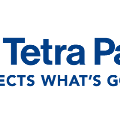
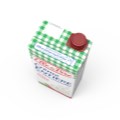

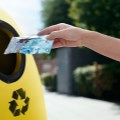


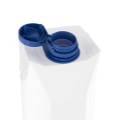
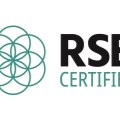






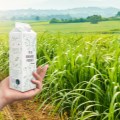

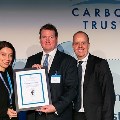

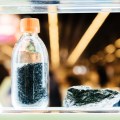
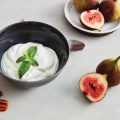

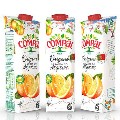

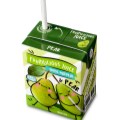


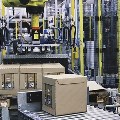





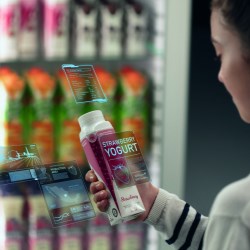


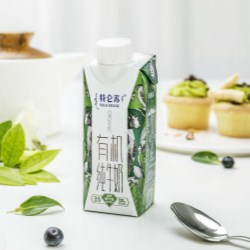

.jpg)
